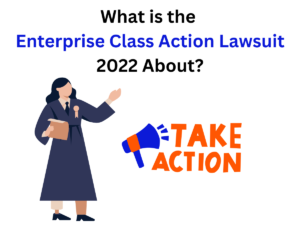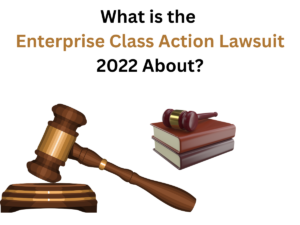In 2022, Enterprise Holdings, the parent company of Enterprise Rent-A-Car, National Car Rental, and Alamo Rent A Car, found itself at the center of a significant legal battle. The Enterprise class action lawsuit of 2022 garnered widespread attention, raising critical questions about consumer rights, corporate accountability, and the practices of one of the largest car rental companies in the world. This article delves into the details of the lawsuit, its origins, the allegations, and its broader implications for both consumers and the car rental industry.


Background of Enterprise Holdings
Enterprise Holdings is a privately-owned company that operates one of the largest fleets of rental vehicles in the world. Founded in 1957 by Jack Taylor, the company has grown exponentially, with a presence in over 90 countries and territories. Known for its extensive network of rental locations, Enterprise has built a reputation for convenience and customer service. However, like many large corporations, it has faced its share of legal challenges over the years. The 2022 class action lawsuit, however, stood out due to the scale of the allegations and the potential impact on millions of customers. The lawsuit was filed on behalf of consumers who claimed they were subjected to unfair and deceptive practices by Enterprise.
Origins of the Lawsuit
The Enterprise class action lawsuit of 2022 stemmed from allegations that the company engaged in deceptive practices related to its rental agreements, fees, and damage claims. Specifically, the plaintiffs accused Enterprise of: Unfair Damage Claims: Customers alleged that Enterprise charged them for pre-existing damage to rental vehicles or inflated repair costs for minor damages. Many claimed they were not given the opportunity to inspect the vehicle properly before renting it, making it difficult to dispute damage claims later. Hidden Fees: The lawsuit alleged that Enterprise failed to disclose certain fees upfront, such as administrative fees, loss-of-use charges, and towing fees. Customers claimed these fees were added to their bills without proper explanation or prior consent. Misleading Insurance Practices: Plaintiffs accused Enterprise of pressuring customers to purchase unnecessary insurance coverage or misleading them about the extent of their existing coverage. Some customers claimed they were told their personal insurance or credit card coverage was insufficient, leading them to purchase redundant policies. Breach of Contract: The lawsuit also alleged that Enterprise violated its rental agreements by failing to honor promised rates, discounts, or terms. Customers claimed they were charged higher rates than initially quoted or were denied discounts they were eligible for. These allegations collectively formed the basis of the class action lawsuit, which sought to hold Enterprise accountable for its practices and secure compensation for affected customers.Key Allegations and Legal Arguments
The plaintiffs in the Enterprise class action lawsuit argued that the company’s practices violated several state and federal consumer protection laws, including:- Deceptive Trade Practices: The lawsuit alleged that Enterprise engaged in deceptive trade practices by misrepresenting the terms of its rental agreements and failing to disclose hidden fees.
- Breach of Contract: Plaintiffs claimed that Enterprise breached its rental contracts by failing to honor agreed-upon rates, terms, and conditions.
- Unjust Enrichment: The lawsuit argued that Enterprise unjustly enriched itself by charging customers for damages, fees, and insurance coverage that were either unnecessary or improperly applied.
- Violation of Consumer Protection Laws: The plaintiffs alleged that Enterprise’s practices violated state consumer protection laws, which prohibit unfair and deceptive business practices.
The Class Action Process
Class action lawsuits are designed to allow a large group of people with similar claims to sue a defendant collectively. In the case of the Enterprise lawsuit, the class included anyone who rented a vehicle from Enterprise, National, or Alamo and was subjected to the alleged unfair practices between a specified period (typically several years leading up to the lawsuit). The lawsuit sought various forms of relief, including:- Compensatory Damages: Monetary compensation for customers who were charged unfair fees, damages, or insurance costs.
- Injunctive Relief: Court orders requiring Enterprise to change its business practices, such as providing clearer disclosures about fees and damages.
- Punitive Damages: Additional damages intended to punish Enterprise for its alleged misconduct and deter similar behavior in the future.
Broader Implications for the Car Rental Industry
The Enterprise class action lawsuit of 2022 had significant implications for the car rental industry as a whole. It highlighted several issues that have long been a source of frustration for consumers, including: Transparency in Pricing: The lawsuit underscored the need for greater transparency in rental agreements and pricing. Many customers feel overwhelmed by the complexity of rental contracts and the numerous fees that can be added to their bills. The case prompted calls for clearer disclosures and simpler pricing structures. Consumer Rights: The lawsuit brought attention to the importance of protecting consumer rights in the rental process. Customers should have the opportunity to inspect vehicles, understand the terms of their rental agreements, and dispute charges they believe are unfair. Corporate Accountability: The case served as a reminder that even large corporations like Enterprise are not above the law. It demonstrated that consumers have the power to hold companies accountable for unfair practices through collective legal action. Industry Standards: The lawsuit prompted discussions about the need for industry-wide standards to address common issues, such as damage claims and insurance practices. Some advocates called for regulatory reforms to ensure a fairer and more consistent experience for consumers.
Outcome of the Lawsuit
As of the time of writing, the Enterprise class action lawsuit of 2022 was still ongoing, with no final resolution. However, the case had already achieved several important milestones:- Class Certification: The court certified the class, allowing the lawsuit to proceed on behalf of all affected customers. This was a significant victory for the plaintiffs, as it increased the potential impact of the case.
- Settlement Discussions: There were reports of settlement discussions between Enterprise and the plaintiffs. While no settlement had been reached, such discussions often indicate that both parties are exploring the possibility of resolving the case without a lengthy trial.
- Increased Scrutiny: The lawsuit prompted increased scrutiny of Enterprise’s practices by regulators, consumer advocacy groups, and the media. This scrutiny put pressure on the company to address the issues raised in the lawsuit and improve its customer service.
Lessons for Consumers
The Enterprise class action lawsuit of 2022 offers several important lessons for consumers: Read the Fine Print: Always read the terms and conditions of your rental agreement carefully. Pay attention to fees, damage policies, and insurance options. Inspect the Vehicle: Before driving off, thoroughly inspect the rental vehicle for any existing damage and document it with photos or videos. This can help you dispute any unfair damage claims later. Know Your Rights: Familiarize yourself with your rights as a consumer and the protections offered by your personal insurance or credit card. Don’t feel pressured to purchase additional coverage unless you truly need it. Speak Up: If you believe you’ve been treated unfairly, don’t hesitate to speak up. File a complaint with the company, contact consumer protection agencies, or consider joining a class action lawsuit if one exists.Is There Any Connection Between the Enterprise Class Action Lawsuit and Unauthorized Charges from EB The Pink Karpet?
The recent enterprise class action lawsuit raises concerns about unauthorized charges from EB The Pink Karpet. An investigation into billing practices may shed light on the issue, emphasizing the importance of understanding eb the pink karpet charges to protect consumers from potential financial discrepancies and ensure fair treatment in transactions.
